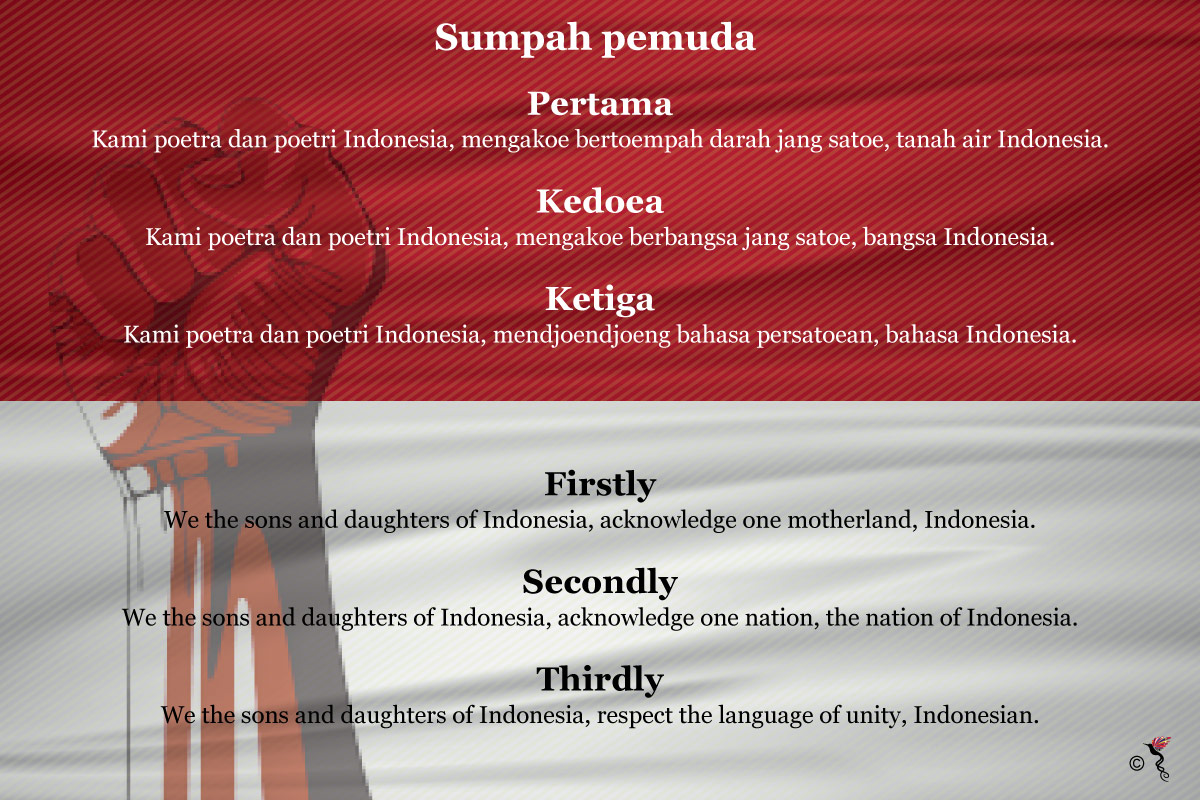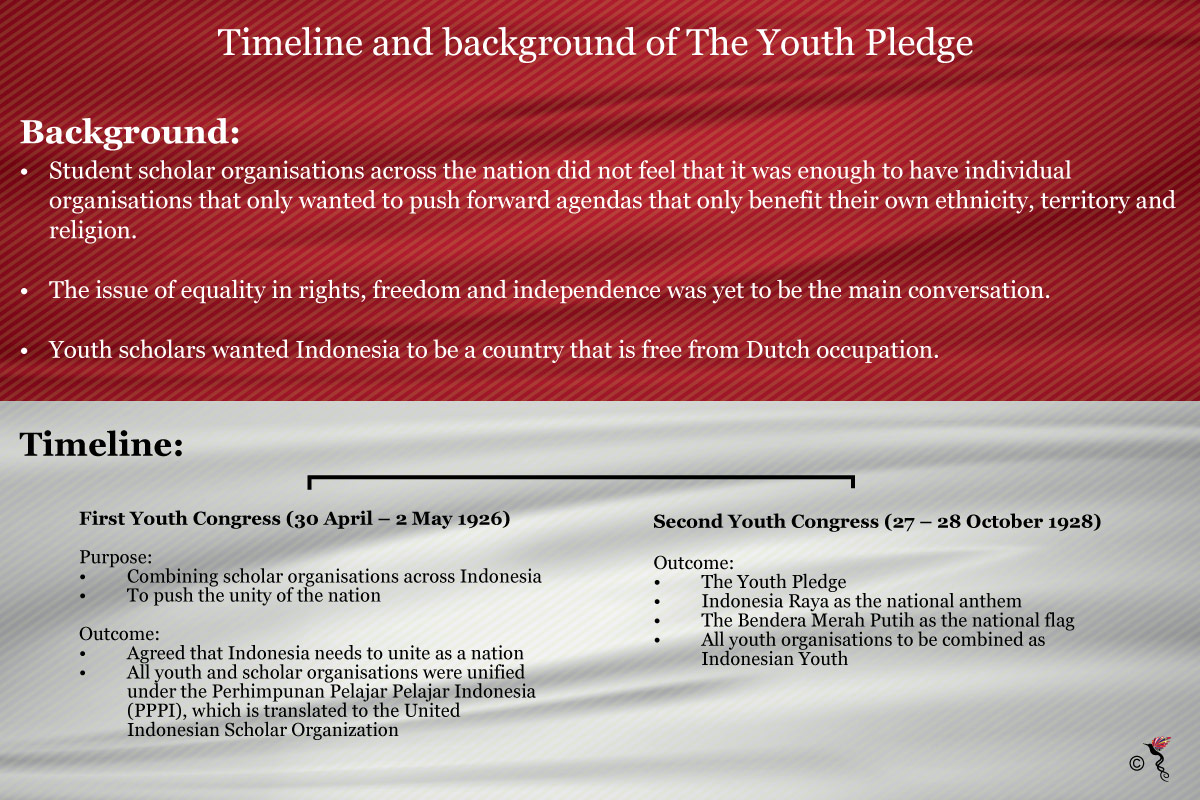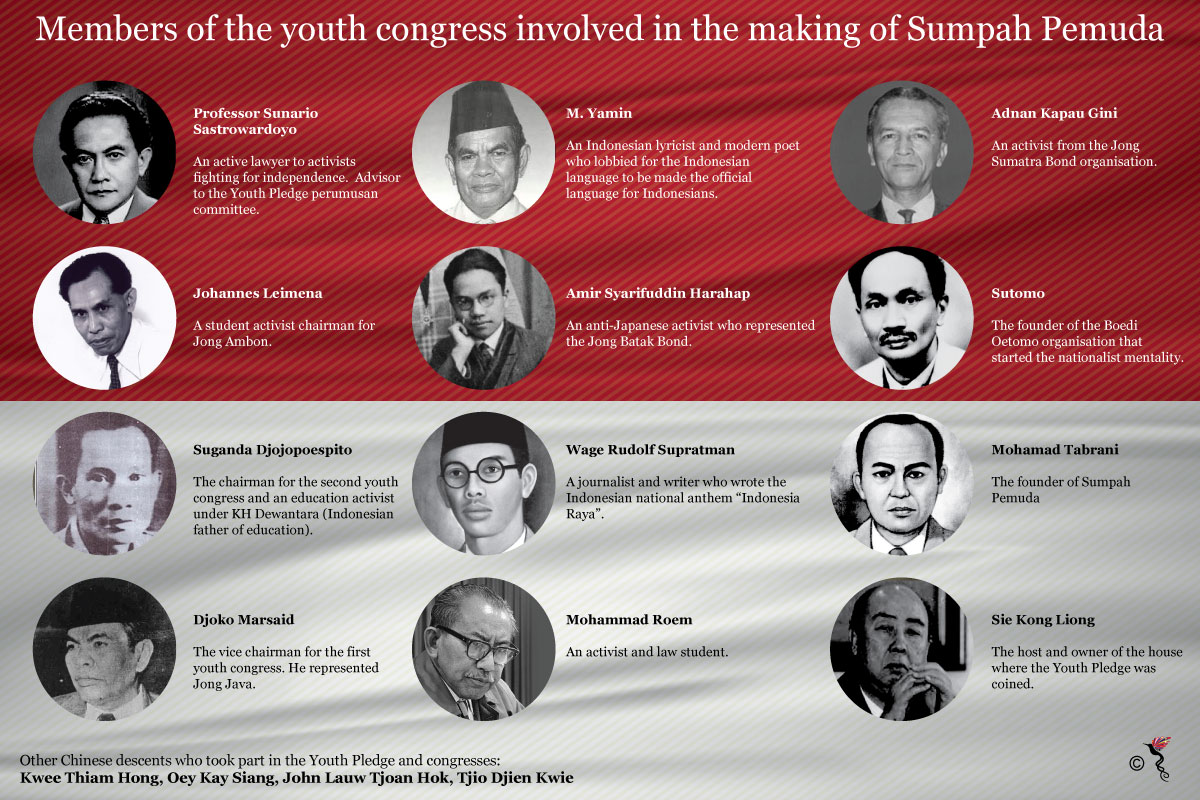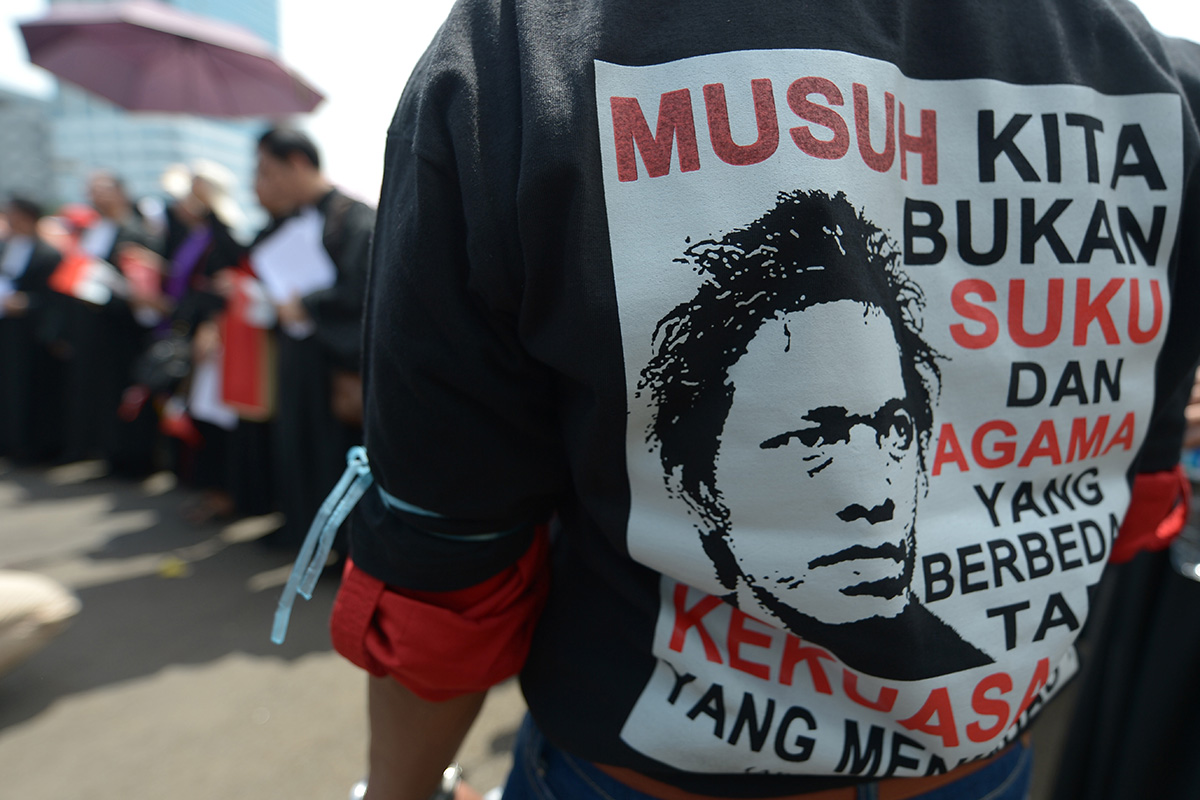In Indonesia, the term "Pribumi" generally means indigenous, aboriginal, and native. But in a country that is home to nearly 300 different cultures, one should ask "who are the native citizens when diversity is an identity?"
It was 89 years ago on October 28, 1928, when 71 young nationalists across the archipelago gathered in a congress to take an oath of unity under the declaration "One fatherland, One nation, One language; Indonesia." It is known as "Sumpah Pemuda", which translates to The Youth Pledge.

The "Sumpah Pemuda" or The Youth Pledge in Indonesia.
However, the declaration seemed to be long-forgotten when newly inaugurated Jakarta Governor Anies Baswedan stirred up controversy on his first full office day, who said in a speech, “in the past, we 'pribumi' were the conquered. Now, it’s time for us to be the hosts in our own land.”
Netizens were fast to catch on to the discriminatory tone in Baswedan’s speech with many pointing out the similarities to US President Donald Trump's remarks.
“Given the use of the term pribumi in a discriminatory way under the New Order, its use by the newly elected governor reflects poorly on the office,” Sumit Mandal, Associate Professor, Faculty of Social Sciences at the University of Nottingham Malaysia Campus told The ASEAN Post.
To many Indonesians, the use of the word pribumi contradicts the very base of the country’s ideology, as stated in the slogan under the national emblem of Indonesia, the Garuda: "Bhineka Tunggal Ika" which translates to united in diversity. In the Presidential Instruction No. 26 issued on September 16, 1998, former Indonesian president Bacharudin Jusuf Habibie (also known as Habibie) condemned the use of the terms "pribumi" and "non-pribumi" by government officials due to its exclusionary connotations during the end of his predecessor's (former president Suharto) New Order.
“I believe that the current Governor of Jakarta’s use of the term pribumi (lit. indigenous) is not only inappropriate, but also historically and legally ignorant, not to mention it is politically incorrect,” Norman Joshua, an Indonesian student who graduated from the Department of History, Northwestern University responded to The ASEAN Post.
In another incident, the words “milik pribumi” (native owned) were drawn on the walls of Jakarta in red paint during the May 1998 riots. It was another dark moment in Indonesian history that was fuelled by the use of "pribumi".
Habibie’s presidential instruction was eloquently created to guarantee an equal footing for all citizens in the archipelagic country in terms of human rights, employment and citizenship. It had also directly banned the use of the term among government officials at all levels including governors of level 1 districts including Jakarta.
It aimed to strengthen unity among Indonesians without discrimination.
However, in a media report published by Indonesian media outlet Kompas, Basweden defended the use of the term "pribumi" by saying, “the word was used in the contexts referring to the colonial era, Jakarta especially was one of the cities that was deeply affected by the presence of the Dutch occupation in Indonesia.”
In conjunction with the 89th anniversary of the "Sumpah Pemuda", the Ministry of Youth and Sports in Indonesia launched a nationwide campaign with the slogan #BeraniBersatu (which translates to dare to unite) to commemorate the bravery of those who gathered and crossed the nation from Sumatera to Ambon – a 4,000km journey equivalent to the distance between Jakarta and Shanghai – in an act that laid the foundation for the nation’s push for unanimity.
Indonesian Youth and Sports Minister, Imam Nahrawi said in his speech that it is now time to readdress the bravery shown by the Youth Congress in 1928 to the youth of the nation today against those who oppose unity among citizens of the archipelago.

Timeline and background of "Sumpah Pemuda" or The Youth Pledge.
“Indonesians often forget that the 'Sumpah Pemuda' contains more than a declaration of Satu Tanah Air, Satu Bangsa, and Satu Bahasa – It also points out that Indonesia’s unity would be reinforced by respecting the principles of unity: determination, history, customary law, and education and scouting,” Norman Joshua added.
The effect of Bawsedan’s "pribumi" speech – in whatever context it was planned for – was instantaneous when a banner with the words “kebangkitan pribumi islam” (which translates to The Awakening of the Native Muslims) was displayed in one of Jakarta’s most congested areas.
Though the banner was taken down by city officials, it showed how the racial and religious tensions in one of the region’s largest metropolitan is on the rise following the religious radicalisation, which led to the arrest of its former governor, Basuki Tjahaya Purnama.

Indonesians who contributed to The Youth Pledge.
For a country built on unity and diversity, in reality the country is far from achieving the vision held by the Youth Congress in 1928 as proven by recent events where religious issues were being politicised.
“I believe that the 'Sumpah Pemuda' ideas becoming increasingly more relevant now than before since there are growing number of parties/group of people who wanted to get rid of the diversity aspect of Indonesia by promoting ideas of Indonesia as if it only belongs to certain religious or ethnic group,” Yosef Djakababa, the Director and Co-founder of the CSEAS-I (Centre for Southeast Asian Studies for Indonesia) responded to The ASEAN Post in an email correspondence.
Recommended stories:
